Omega-3 Fatty Acids
How to submit an article:
- Registered users can submit any published journal article that has a unique DOI (Digital Object Identifier) name or link to Research Hub.
- For example, you can paste the full DOI link:
https://doi.org/10.1109/5.771073or just the DOI name:10.1109/5.771073into the field above and click submit. - The person who is first to submit a valid article to Research Hub will forever be credited for it, and every article submission earns you +6 Research Points.
Related Topics
Published research studies are articles that present the findings of original research that has undergone a peer-review process and has been made publicly available in scholarly journals, books or other media.

Recommendations for nutritional supplements for dry eye disease: current advances
2024 May 30 Frontiers in Pharmacology Cong Y, Zhang Y, Han Y, Wu Y, Wang D, Zhang B
Systematic Review Review Article Omega-3 Fatty Acids Dry EyeThe review reveals that nutritional supplements, particularly fish oils, vitamins, trace elements, and phytochemical extracts, show promising therapeutic potential for Dry Eye Disease management.

Effect of omega-3 supplements or diets on fertility in women: A meta-analysis
2024 Apr Heliyon Trop-Steinberg S, Gal M, Azar Y, Kilav-Levin R, Heifetz EM
Systematic Review Meta-Analysis IVF Female Fertility Omega-3 Fatty AcidsIncreased omega-3 intake significantly improves women's chances of pregnancy and fertilization rates.
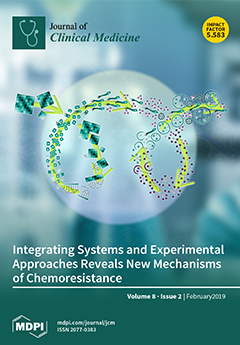
Efficacy of Omega-3 Intake in Managing Dry Eye Disease: A Systematic Review and Meta-Analysis of Randomized Controlled Trials
2023 Nov 10 Journal of Clinical Medicine Wang WX, Ko ML
Meta-Analysis Systematic Review Omega-3 Fatty Acids Eicosapentaenoic Acid Dry EyeOmega-3 fatty acid supplements can effectively alleviate symptoms of dry eye disease, especially when consumed in high doses for a long term and with high eicosapentaenoic acid levels.

Nutrition and its role in prevention and management of rheumatoid arthritis
2023 Jul Autoimmunity Reviews Nikiphorou E, Philippou E
Review Article Mediterranean Diet Sardine Omega-3 Fatty AcidsNutrition, particularly an anti-inflammatory Mediterranean diet supplemented with oily fish and omega-3 supplements, can potentially reduce inflammation and improve symptoms of rheumatoid arthritis.

Omega-3 supplements in the prevention and treatment of youth depression and anxiety symptoms: A scoping review
2023 Apr 20 PLOS One Reily NM, Tang S, Negrone A, Gan DZQ, Sheanoda V, Christensen H
Review Article Omega-3 Fatty Acids Anxiety Children's HealthResearch insights are moderated by the Research Hub team and offer an at-a-glance overview of interesting research findings.

2024 Frontiers in Pharmacology
The review reveals that nutritional supplements, particularly fish oils, vitamins, trace elements, and phytochemical extracts, show promising therapeutic potential for Dry Eye Disease management.
Systematic Review Dry Eye
Recommendations for nutritional supplements for dry eye disease: current advances
Cong Y, Zhang Y, Han Y, Wu Y, Wang D, Zhang B

2024 Heliyon
Increased omega-3 intake significantly improves women's chances of pregnancy and fertilization rates.
Systematic Review Female Fertility IVF
Effect of omega-3 supplements or diets on fertility in women: A meta-analysis
Trop-Steinberg S, Gal M, Azar Y, Kilav-Levin R, Heifetz EM

2023 Journal of Clinical Medicine
Omega-3 fatty acid supplements can effectively alleviate symptoms of dry eye disease, especially when consumed in high doses for a long term and with high eicosapentaenoic acid levels.
Meta-Analysis Dry Eye Eicosapentaenoic Acid
Efficacy of Omega-3 Intake in Managing Dry Eye Disease: A Systematic Review and Meta-Analysis of Randomized Controlled Trials
Wang WX, Ko ML

2023 Autoimmunity Reviews
Nutrition, particularly an anti-inflammatory Mediterranean diet supplemented with oily fish and omega-3 supplements, can potentially reduce inflammation and improve symptoms of rheumatoid arthritis.
Review Article Mediterranean Diet Sardine
Nutrition and its role in prevention and management of rheumatoid arthritis
Nikiphorou E, Philippou E

2023 Frontiers in Nutrition
Sardines, being an affordable source of Omega-3 and other cardioprotective nutrients, can potentially reduce the need for Omega-3 supplementation and manage cardiometabolic diseases.
Review Article Cardiovascular Disease Cholesterol High Blood Pressure Metabolic Syndrome Sardine
Eating more sardines instead of fish oil supplementation: Beyond omega-3 polyunsaturated fatty acids, a matrix of nutrients with cardiovascular benefits
Santos HO, May TL, Bueno AA
Review Articles
Review articles summarise and critically evaluate the current state of research on a specific topic or field by synthesising multiple primary research studies.

Recommendations for nutritional supplements for dry eye disease: current advances
2024 May 30 Frontiers in Pharmacology Cong Y, Zhang Y, Han Y, Wu Y, Wang D, Zhang B
Systematic Review Review Article Omega-3 Fatty Acids Dry EyeThe review reveals that nutritional supplements, particularly fish oils, vitamins, trace elements, and phytochemical extracts, show promising therapeutic potential for Dry Eye Disease management.

Effect of omega-3 supplements or diets on fertility in women: A meta-analysis
2024 Apr Heliyon Trop-Steinberg S, Gal M, Azar Y, Kilav-Levin R, Heifetz EM
Systematic Review Meta-Analysis IVF Female Fertility Omega-3 Fatty AcidsIncreased omega-3 intake significantly improves women's chances of pregnancy and fertilization rates.

Efficacy of Omega-3 Intake in Managing Dry Eye Disease: A Systematic Review and Meta-Analysis of Randomized Controlled Trials
2023 Nov 10 Journal of Clinical Medicine Wang WX, Ko ML
Meta-Analysis Systematic Review Omega-3 Fatty Acids Eicosapentaenoic Acid Dry EyeOmega-3 fatty acid supplements can effectively alleviate symptoms of dry eye disease, especially when consumed in high doses for a long term and with high eicosapentaenoic acid levels.

Nutrition and its role in prevention and management of rheumatoid arthritis
2023 Jul Autoimmunity Reviews Nikiphorou E, Philippou E
Review Article Mediterranean Diet Sardine Omega-3 Fatty AcidsNutrition, particularly an anti-inflammatory Mediterranean diet supplemented with oily fish and omega-3 supplements, can potentially reduce inflammation and improve symptoms of rheumatoid arthritis.

Omega-3 supplements in the prevention and treatment of youth depression and anxiety symptoms: A scoping review
2023 Apr 20 PLOS One Reily NM, Tang S, Negrone A, Gan DZQ, Sheanoda V, Christensen H
Review Article Omega-3 Fatty Acids Anxiety Children's HealthThe scientific evidence for efficacy of omega-3 supplementation in reducing symptoms of depression and anxiety in young people is inconclusive, however, it was found that most "grey literature" sources recommended the use of omega-3 supplements in young people. —Jinnan C 20 Oct 2023
Clinical Trials
Clinical trials are research studies that involve people and are conducted to evaluate the safety and efficacy of new treatments or interventions, such as drugs, medical devices, or behavioural therapies.

Effectiveness of a Novel ω-3 Krill Oil Agent in Patients With Severe Hypertriglyceridemia
2022 Jan 06 JAMA Network Open Mozaffarian D, Maki KC, Bays HE, Aguilera F, Gould G, Hegele RA, et al.
his study found that ω-3 –PL/FFA, a novel krill oil–derived ω-3 formulation, reduced TG levels and was safe and well tolerated in patients with severe hypertriglyceridemia.
Randomised Controlled Trial Triglyceride Omega-3 Fatty AcidsOmega-3 fatty-acids modulate symptoms of depressive disorder, serum levels of omega-3 fatty acids and omega-6/omega-3 ratio in children. A randomized, double-blind and controlled trial
2020 May Psychiatry Research Trebatická J, Hradečná Z, Surovcová A, Katrenčíková B, Gushina I, Waczulíková I, et al.
The study concluded that an omega-3 fatty acid fish oil emulsion showed significant reductions in depressive symptoms and a decrease in omega-6/omega-3 ratio in the treatment group compared to the control group.
Clinical Study Randomised Controlled Trial Children's Health Depression Omega-6 Omega-3 Ratio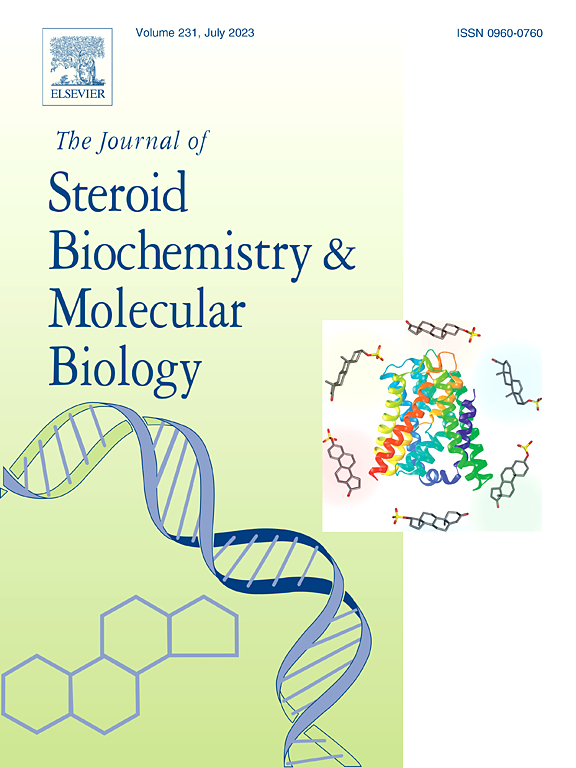
A randomised controlled trial of vitamin D and omega-3 long chain polyunsaturated fatty acids in the treatment of irritability and hyperactivity among children with autism spectrum disorder
2019 Mar The Journal of Steroid Biochemistry and Molecular Biology Mazahery H, Conlon CA, Beck KL, Mugridge O, Kruger MC, Stonehouse W, et al.
The results indicate that vitamin D and omega-3 LCPUFA reduced irritability symptoms in children with ASD. Vitamin D also reduced hyperactivity symptoms in these children.
Randomised Controlled Trial Vitamin D Omega-3 Fatty Acids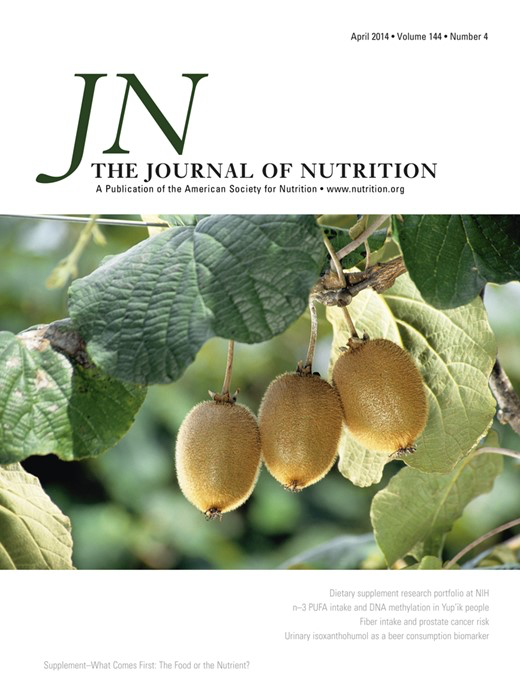
Consumption of Fish Oil Providing Amounts of Eicosapentaenoic Acid and Docosahexaenoic Acid That Can Be Obtained from the Diet Reduces Blood Pressure in Adults with Systolic Hypertension: A Retrospective Analysis
2016 Mar The Journal of Nutrition Minihane AM, Armah CK, Miles EA, Madden JM, Clark AB, Caslake MJ, et al.
Randomised Controlled Trial High Blood Pressure Omega-3 Fatty AcidsDietary omega-3 intake shows promise in lowering systolic blood pressure.
Study Protocols
Published study protocols are detailed plans that outline the objectives, methodology, statistical analyses, and organisation of a research study that have been made publicly available for others to review and use as a reference.
Presentation Slides

Systematic Review
The review reveals that nutritional supplements, particularly fish oils, vitamins, trace elements, and phytochemical extracts, show promising therapeutic potential for Dry Eye Disease management.
Cong Y, Zhang Y, Han Y, Wu Y, Wang D, Zhang B

Systematic Review
Increased omega-3 intake significantly improves women's chances of pregnancy and fertilization rates.
Trop-Steinberg S, Gal M, Azar Y, Kilav-Levin R, Heifetz EM

Meta-Analysis
Omega-3 fatty acid supplements can effectively alleviate symptoms of dry eye disease, especially when consumed in high doses for a long term and with high eicosapentaenoic acid levels.
Wang WX, Ko ML

Review Article
Nutrition, particularly an anti-inflammatory Mediterranean diet supplemented with oily fish and omega-3 supplements, can potentially reduce inflammation and improve symptoms of rheumatoid arthritis.
Nikiphorou E, Philippou E

Review Article
Sardines, being an affordable source of Omega-3 and other cardioprotective nutrients, can potentially reduce the need for Omega-3 supplementation and manage cardiometabolic diseases.
Santos HO, May TL, Bueno AA
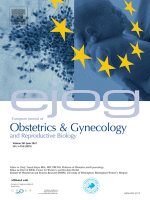
Systematic Review
Increased intake of omega-3 can enhance the quality of oocyte and embryo, thereby potentially improving the success rate of assisted reproductive techniques.
Abodi M, De Cosmi V, Parazzini F, Agostoni C
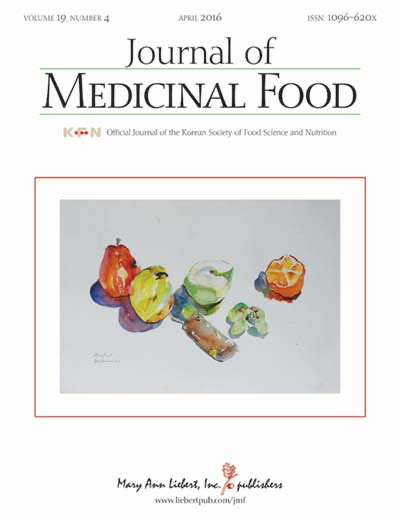
Review Article
Omega-3 fatty acids can help prevent and manage chronic inflammatory diseases, including ulcerative colitis and rheumatoid arthritis, through influencing gut microbiota.
Zorgetto-Pinheiro VA, Machate DJ, Figueiredo PS, Marcelino G, Hiane PA, Pott A, Guimarães RCA, Bogo D

Cohort Study
Moderate consumption of fish, particularly oily fish, may decrease rheumatoid arthritis risk, potentially countering the increased risk induced by smoking.
Nguyen Y, Salliot C, Mariette X, Boutron-Ruault MC, Seror R

Cohort Study
Self-reported use of omega-3 supplements is associated with a higher probability of natural conception in women aged 30-44 without a history of infertility.
Stanhiser J, Jukic AMZ, McConnaughey DR, Steiner AZ
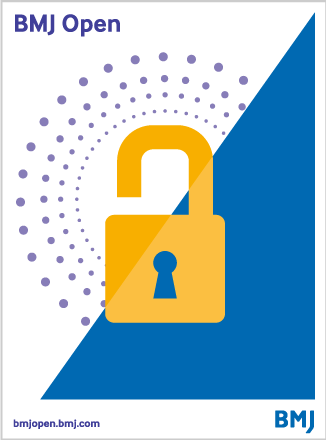
Cohort Study
Vitamin D and Omega 3 fatty acids supplementation appears to reduce the risk of autoimmune diseases.
Hahn J, Cook NR, Alexander EK, Friedman S, Walter J, Bubes V, Kotler G, Lee IM, Manson JAE, Costenbader KH

Cohort Study
Increased plasma omega-3 levels, which are associated with genetically higher intake of omega-3, contribute to a higher risk of rheumatoid arthritis among people of European ancestry.
Zhu G, Zhou S, Xu Y, Gao R, Li H, Zhai B, Liu X, He Y, Wang X, Han G, Su W, Wang R
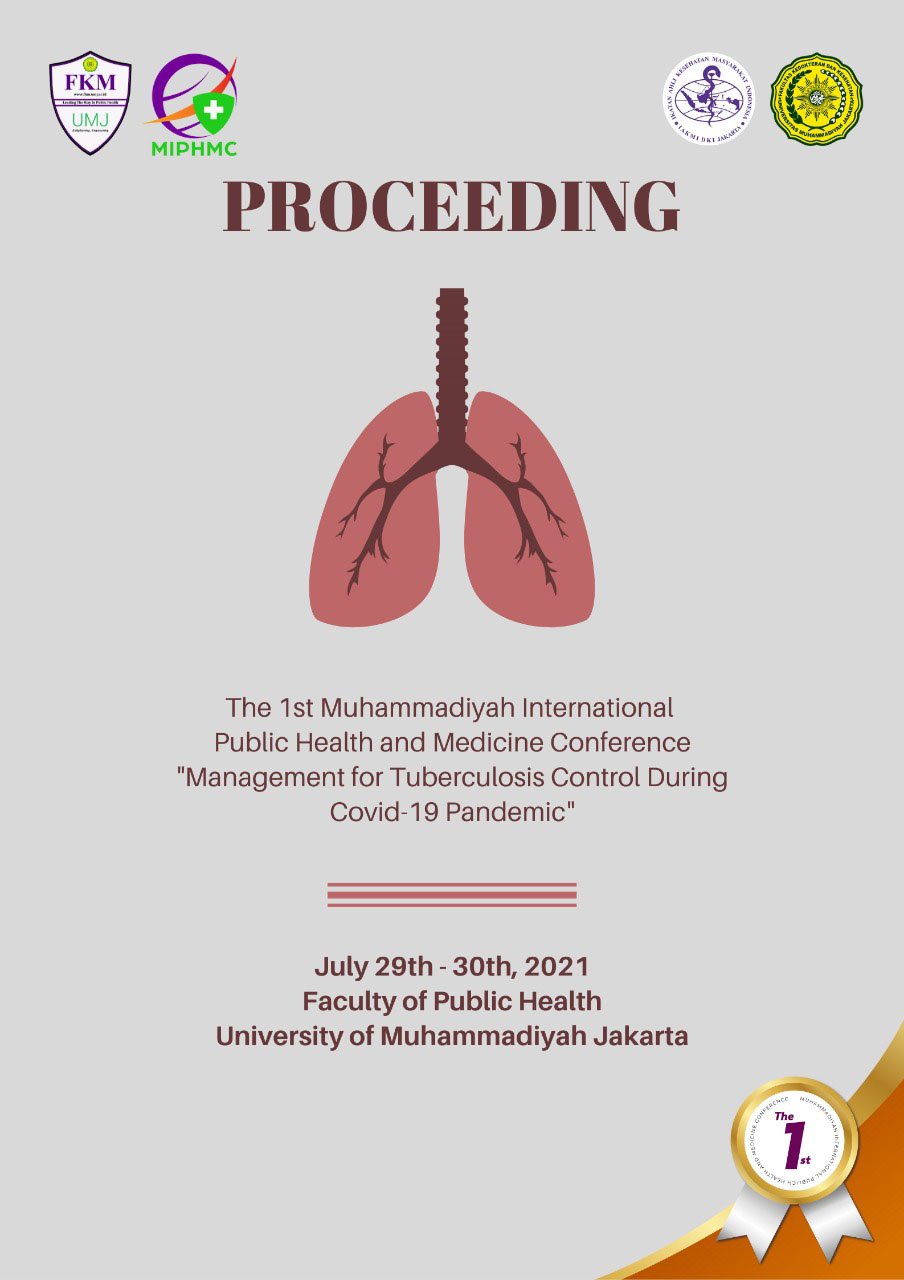
Cohort Study
Consumption of sardines can effectively prevent type 2 diabetes mellitus and hypertension, particularly in senior citizens, due to their high omega 3, EPA, and DHA content.
Nurdiana Febriyanti V

Cohort Study
Sardines are highly proven to be able to effectively prevent type 2 diabetes, prevent hypertension, and lower blood pressure, especially for senior citizens.
Nurdiana Febriyanti V
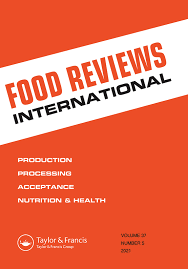
Review Article
Oily fish, particularly sardines, due to their high omega-3 and taurine content, may play a protective role in slowing the progression towards type 2 diabetes.
Díaz-Rizzolo DA, Miro A, Gomis R
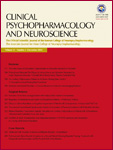
Review Article
Omega-3 polyunsaturated fatty acids supplementation during the prenatal and perinatal period could have a protective effect on neurodevelopmental disorders including ADHD, ASD, and MDD in youth.
Chang JPC, Su KP

Network Pharmacology
Seasonal variations influence the nutrient composition of European sardines, with lipid levels peaking from July to September and amino acid content highest during winter.
Šimat V, Hamed I, Petričević S, Bogdanović T
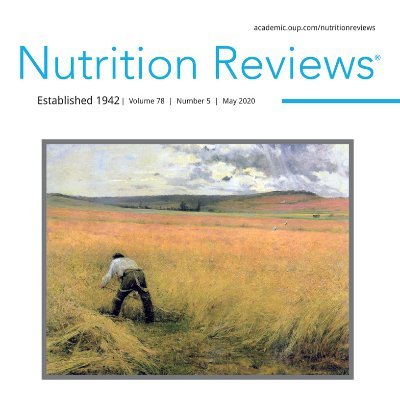
Systematic Review
High doses of omega-3 fatty acids, Vitamin D supplementation, and dietary sodium restriction showed significant improvement in reducing rheumatoid arthritis symptoms.
Philippou E, Petersson SD, Rodomar C, Nikiphorou E

Review Article
Omega 3 fatty acids can counter muscle lipotoxicity and prevent comorbidities in patients with rheumatoid arthritis, supporting muscle health and reducing cardiometabolic disease risk.
Lanchais K, Capel F, Tournadre A

Review Article
Omega-3 fatty acids, essential for human health, can reduce inflammation and may mitigate symptoms in rheumatoid arthritis, particularly joint swelling and tenderness.
Kostoglou-Athanassiou I, Athanassiou L, Athanassiou P

Randomised Controlled Trial
Dietary omega-3 intake shows promise in lowering systolic blood pressure.
Minihane AM, Armah CK, Miles EA, Madden JM, Clark AB, Caslake MJ, Packard CJ, Kofler BM, Lietz G, Curtis PJ, Mathers JC, Williams CM, Calder PC

Review Article
Serotonin function, influenced by vitamin D and omega-3 fatty acids, plays a critical role in neuropsychiatric disorders and certain behavioral functions.
Patrick RP, Ames BN
Executive Summary
Write an executive summary in the form of a blog article on the topic of "Research into Chinese medicine treatment for Omega-3 Fatty Acids" summarising the research below and using language that can be easily understood by patients and avoiding medical jargon using a professional and caring tone of voice.
Write an executive summary in the form of a blog article on the topic of "Researched Chinese medicine treatments for Omega-3 Fatty Acids" summarising the research below in an objective and easy to understand way, and using language that can be easily understood by patients. Group the article into Chinese medicine treatments first, followed by nutrition and other treatments. Avoid using medical jargon and use a professional and caring tone of voice.
Write me a concise but easy to understand executive summary on the topic of "Chinese medicine treatments for Omega-3 Fatty Acids" based on the following research that I will give you. Your summary should be 2 paragraphs long in Australian English spelling and include references to the studies.
A Systematic Review published in 2024 in the journal Frontiers in Pharmacology found that The review reveals that nutritional supplements, particularly fish oils, vitamins, trace elements, and phytochemical extracts, show promising therapeutic potential for Dry Eye Disease management. The methodology used in the research paper mainly focuses on evaluating different oral nutritional supplements with varied compositions and dosages, in order to assess their impact on Dry Eye Disease symptoms. These supplements include key components like fish oils, vitamins, trace elements, and extracts from plants, recognized for their potential nutritional value. Emphasizing the role of nutrition in combating ocular surface diseases, the research also emphasizes the imbalance caused by deficiencies in polyunsaturated fatty acids and vitamin insufficiencies, which can lead to ocular issues such as inflammation and oxidative stress. The results discussion outlines considerable benefits of using these supplements, not only for managing Dry Eye Disease symptoms but also potentially for overall ocular health. It was observed that nutrients in these supplements hold promising therapeutic qualities, presenting new perspectives for supplement combinations in Dry Eye Disease treatment. Beyond the well-known nutrients, it was suggested that exploring novel nutrients could help establish even more effective management strategies for Dry Eye Disease.
A Systematic Review published in 2024 in the journal Heliyon found that Increased omega-3 intake significantly improves women's chances of pregnancy and fertilization rates. The methodology involved retrieving articles from databases like PubMed, Clinical Trials, CINAHL/EBSCO, Medline Complete, and Cochrane Library, published up to April 2021 using keywords related to omega-3, fertilization, and pregnancy. The selection criteria included studies that reported female fertility occurring naturally or intracytoplasmic sperm injection techniques concurrent with omega-3 intake, excluding retrospective studies, studies featuring postmenopausal women, or those with unevenly matched research groups. A meta-analysis was conducted using the extracted odds ratios of clinical pregnancies and fertilization rates from each study. The results, drawn from six fertility treatment-related trials with 1789 women, four trials with 2607 women who conceived naturally, and three further trials involving 1725 oocytes for fertility rates, consistently show the beneficial effects of omega-3. These findings, however, exhibited a high degree of heterogeneity, suggesting variable factors across the studies might have influenced the outcomes.
A Meta-Analysis published in 2023 in the journal Journal of Clinical Medicine found that Omega-3 fatty acid supplements can effectively alleviate symptoms of dry eye disease, especially when consumed in high doses for a long term and with high eicosapentaenoic acid levels. The methodology of this study involved an intensive review of data from multiple reliable sources like PubMed, Embase, and others covering the timespan from 2013 to 2023. The focus was on randomized clinical trials that studied the impact of omega-3 fatty acids on patients with dry eye disease and provided accessible pre- and post-intervention data. Studies with overlapping participants were excluded, as were studies without omega-3 supplementation or not featuring a placebo control or quantitative assessments. Independent reviewers extracted data pertaining to dry eye symptom scores and other related metrics. The results showed that patients who were administered omega-3 treatment demonstrated considerable improvement in symptoms of dry eye disease compared to those on a placebo treatment. The meta-regression analysis deduced positive correlations between the daily dose of omega-3, duration of omega-3 intake, and percentage of eicosapentaenoic acid, with a reduction in dry eye symptom scores. Similar trends were observed with other dry eye related metrics. These findings provide substantial evidence on the beneficial effect of omega-3 fatty acid supplements in managing dry eye disease. However, due to the diversity in patient characteristics and the heterogeneity in study results, care should be taken in widely applying these findings.
A Review Article published in 2023 in the journal Autoimmunity Reviews found that Nutrition, particularly an anti-inflammatory Mediterranean diet supplemented with oily fish and omega-3 supplements, can potentially reduce inflammation and improve symptoms of rheumatoid arthritis. The review examines evidence indicating a possible connection between nutrition and the risk and management of rheumatoid arthritis, an autoimmune disease having an immune-inflammatory response. The impact of different food types was considered, including pro-inflammatory and anti-inflammatory foods. Specifically, the research highlights the effectiveness of a Mediterranean diet, rich in fish and supplemented with omega-3 polyunsaturated fatty acids, in reducing inflammation and oxidation. Other factors such as herbs and spices, beverages, vitamin D, and probiotics were also taken into account. The research emphasizes the direct and indirect role of nutrition through the management of co-morbidity. The disease activity was observed to improve with dietary changes, particularly a propensity to reduce inflammation, oxidation, and beneficial effects on gut microbiota. An anti-inflammatory Mediterranean diet, supplemented with consumption of oily fish at least twice a week, and daily intake of omega-3 polyunsaturated fatty acid supplements of 2 g, has been recommended. The study also highlights the importance of rheumatologists working closely with registered dietitians to support patients in managing a well-balanced diet according to their individual needs.
A Review Article published in 2023 in the journal Frontiers in Nutrition found that Sardines, being an affordable source of Omega-3 and other cardioprotective nutrients, can potentially reduce the need for Omega-3 supplementation and manage cardiometabolic diseases. The abstract primarily acknowledges the importance of Omega-3 polyunsaturated fatty acids with respect to managing diseases related to heart health and metabolism, for instance, type 2 diabetes, hypertension, hypertriglyceridaemia, and fatty liver disease. However, these fatty acids are not the sole beneficial component of sardines. Minerals including but not limited to calcium, potassium, and magnesium as well as substances like taurine and arginine found in sardines have a significant role in controlling mild inflammation and oxidative stress which are usually present in cardiovascular diseases and hemodynamic dysfunction. The results discussed in the abstract suggest a positive correlation between consumption of sardines and potential cardiometabolic benefits. By considering the dose-response relationship effects, a pragmatic approach towards consumption of nutrients was suggested. The intake of sardines was seen not only as a means of Omega-3 supplementation but also as a comprehensive approach to enhancing cardiovascular health. The abstract concludes with an emphasis on the many beneficial nutrients found in sardines besides Omega-3, underlining the need to shift the focus from synthetic supplementation to natural dietary improvement.
A Systematic Review published in 2022 in the journal European Journal of Obstetrics & Gynecology and Reproductive Biology found that Increased intake of omega-3 can enhance the quality of oocyte and embryo, thereby potentially improving the success rate of assisted reproductive techniques. The systematic review was conducted adhering to the PRISMA 2020 statement and the procedure was registered with PROSPERO. Women who were undergoing assisted reproductive techniques such as in vitro fertilisation or intracytoplasmic sperm injection, and whose diets were evaluated for omega-3 intake, were the focal point. The analysis looked at women who had an increased omega-3 intake compared to women undergoing the same procedures without an increased omega-3 intake prior to the cycle. A wide range of literature was reviewed, selecting five relevant studies which consisted a large number of records. The results of these five studies show a beneficial effect of omega-3 fats on the success rate of assisted reproductive outcomes. This is primarily illustrated by an increase in the quality of both the oocyte and the embryo, recognised through enhanced morphological and morphokinetic parameters. While the studies viewed varied in specifics, all pointed to the optimistic impact of increasing omega-3 intake in women seeking pregnancy through assisted methods.
A Review Article published in 2022 in the journal Journal of Medicinal Food found that Omega-3 fatty acids can help prevent and manage chronic inflammatory diseases, including ulcerative colitis and rheumatoid arthritis, through influencing gut microbiota. The study primarily encompasses a review of both experimental and clinical studies on the influence of omega-3 fatty acids on chronic inflammatory conditions, with the attention being specifically focused on those diseases with an autoimmune background. The study highlights the role of these fatty acids in maintaining bodily homeostasis, as well as the enzymatic processes they trigger within the body upon ingestion. Natural sources of omega-3 are also explored, emphasizing the importance of maintaining a healthy and balanced diet. In their exploration of omega-3's impact on inflammatory conditions, the researchers revisit the pathogenesis of ulcerative colitis and rheumatoid arthritis under the theoretical approach of gut microbiota dysbiosis. This approach emphasizes the role of the gut in maintaining health and identifies how imbalances can contribute to the development and persistence of these conditions. The researchers propose that omega-3 fatty acids are able to prevent and control these conditions, which are significant contributors to global chronic health burden and can lead to severe complications and disabilities if not treated. The potential of omega-3's to prevent severe illness in cases of COVID-19 infection through immune system modulation and control of the inflammatory process is also briefly explored.
A Cohort Study published in 2022 in the journal Nutrients found that Moderate consumption of fish, particularly oily fish, may decrease rheumatoid arthritis risk, potentially countering the increased risk induced by smoking. The research was carried out within the E3N Study, a French prospective cohort study involving 98,995 women from 1990. Within this group, the diet of the subjects was assessed via validated food frequency questionnaires gathered in 1993. Utilising the colossal amount of data collected, a statistical method known as Cox proportional hazards models were implemented to identify potential relationships between incident rheumatoid arthritis, various types and amounts of fish consumption, and other potential risk factors such as smoking and age. Looking at the discussion of results, the study unearthed some fascinating links. Starting off, no linear association between general fish consumption and rheumatoid arthritis risk existed. Nevertheless, moderate consumption of fish was found to have a protective effect, reducing likelihood of developing rheumatoid arthritis. Digging deeper, this protection was especially pronounced in current or former smokers. Interestingly, this favorable association seemed to be stronger when it came to consumption of oily fish, thanks to its high omega-3 fatty acid content. Conversely, lean fish consumption did not display the same level of correlation. The proposed theory is the protective influence is likely due to the omega-3 fatty acid content prevalent in oily fish.
A Cohort Study published in 2022 in the journal Human Reproduction found that Self-reported use of omega-3 supplements is associated with a higher probability of natural conception in women aged 30-44 without a history of infertility. The study conducted a secondary data analysis of a prospective time to pregnancy cohort study, known as Time to Conceive (TTC), from 2008 to December 2015 focusing on 900 women aged 30-44 years who were trying to conceive for less than 3 months without any history of infertility. While they attempted to conceive, they were required to record daily, any menstrual cycle events and their intake of any supplements or medication using a database. Those supplements and vitamins that contained omega-3 were identified. The analysis determined the use of omega-3, defined as its consumption on at least 20% of days during a known menstrual cycle, in each cycle of their pregnancy attempts. From the analysis, it was noted that women who took omega-3 supplements tended to be younger, leaner, have not been pregnant before, racially white, and more likely to take vitamin D, prenatal and multivitamins compared to women not taking omega-3s. The study adopted a model to adjust for these factors, allowing for an evaluation of the impact of omega-3 supplementation on fertility independent of these characteristics. After all these adjustments, it was found that women taking omega-3 supplements had a higher chance of conceiving compared to those not taking omega-3s.
A Cohort Study published in 2022 in the journal BMJ Open found that Vitamin D and Omega 3 fatty acids supplementation appears to reduce the risk of autoimmune diseases. In this nationwide, double-blind, randomized, controlled trial, 25,871 male and female participants over the ages of 50 and 55 respectively, were given either Vitamin D (2000 IU/day), Omega 3 fatty acids (1000 mg/day), both, or a placebo. Over the median follow-up period of 5.3 years, participants self-reported cases of autoimmune diseases, and these were verified by thorough medical record review. In the discussion of results, it was found that Vitamin D supplementation, regardless of the presence of Omega 3, seemed to reduce the occurrence of autoimmune diseases by 22%. Meanwhile, Omega 3 supplementation alone didn't show a statistically significant reduction in autoimmune diseases, but it did show a larger effect in reducing autoimmune diseases than the reference arm (that received placebo for both Vitamin D and Omega 3).
A Cohort Study published in 2022 in the journal Clinical Rheumatology found that Increased plasma omega-3 levels, which are associated with genetically higher intake of omega-3, contribute to a higher risk of rheumatoid arthritis among people of European ancestry. Methodology: The researchers have used an extensive set of data from the largest Genome-Wide Association Study (GWAS) which focuses on the correlation between omega-3 fatty acids and rheumatoid arthritis. They used information from a total of 114,999 individuals with European ancestry for the omega-3 study and 14,361 cases along with 43,923 controls of European ancestry for the rheumatoid arthritis study. By employing various methodological tests such as Mendelian randomization-egger_intercept, MR-PRESSO, and Cochran's Q test, they assessed the role of pleiotropy and heterogeneity in the relationship between omega-3 and rheumatoid arthritis. Discussion of Results: Results reveal no significant bias, pleiotropy, or heterogeneity among the omega-3 genetic instrumental variables in rheumatoid arthritis datasets. However, as the Mendelian randomization analysis indicated a causal link, the study provides the inference that with the genetic increase of omega-3 levels, the risk of rheumatoid arthritis also increases, particularly among individuals of European descent. Therefore, it suggests that the reduction in the intake of omega-3 could potentially reduce the risk of rheumatoid arthritis in this population.
A Cohort Study published in 2021 in the journal Muhammadiyah International Public Health and Medicine Proceeding found that Consumption of sardines can effectively prevent type 2 diabetes mellitus and hypertension, particularly in senior citizens, due to their high omega 3, EPA, and DHA content. For the methodology, the researchers carried out a literature study to delve into the research topic. They exclusively used already available research and data for their study rather than new, hands-on investigations. They explored extensively into the health benefits and properties of sardines and how it contributes to preventing type 2 diabetes and hypertension. In their discussion of the results, it was determined that sardines have multiple beneficial properties. They discovered that sardines have anti-inflammatory and antioxidant roles, they enhance membrane fluidity and increase insulin receptors and action. Furthermore, sardines also possess hypoglycemic and hypotensive qualities. The multitude of these properties thus shows the capability of sardines to effectively prevent and lower hypertension and type 2 diabetes, especially among senior citizens.
A Cohort Study published in 2021 in the journal Muhammadiyah International Public Health and Medicine Proceeding found that Sardines are highly proven to be able to effectively prevent type 2 diabetes, prevent hypertension, and lower blood pressure, especially for senior citizens. Sardines contain anti-inflammatory, and antioxidant roles, boost cell membrane fluidity, boost the number of insulin receptors and insulin action, and also contain hypotensive and hypoglycemic effects.
A Review Article published in 2021 in the journal Food Reviews International found that Oily fish, particularly sardines, due to their high omega-3 and taurine content, may play a protective role in slowing the progression towards type 2 diabetes. The methodology used in this research involved an integrative review of both observational studies and clinical trials to study the potential correlation between sardine consumption and preventing type 2 diabetes. The focus was specifically on oily fish that are rich in omega-3 and taurine and contain low amounts of persistent organic pollutants, with a special emphasis on sardines due to their high concentration of the beneficial compounds. The results illustrated a possible protective effect of consuming oily fish, particularly sardines, against the progression towards type 2 diabetes. Despite the controversy surrounding fish consumption and diabetes risk, it was observed that the high content of omega-3 fatty acids and taurine in these fish might be a key factor in their potential antidiabetogenic effect. However, the presence of persistent organic pollutants in these fish creates a challenge that needs careful consideration.
A Review Article published in 2020 in the journal Clinical Psychopharmacology and Neuroscience found that Omega-3 polyunsaturated fatty acids supplementation during the prenatal and perinatal period could have a protective effect on neurodevelopmental disorders including ADHD, ASD, and MDD in youth. The research implemented supplementation of omega-3 polyunsaturated fatty acids also known as Omega-3 PUFAs, in different quantities and durations to youth with attention deficit hyperactivity disorder (ADHD), major depressive disorder (MDD) and autism spectrum disorder (ASD). This was carried out based on suggested dosage and duration from various randomized controlled trials and systemic literature reviews. It was observed that omega-3 PUFAs were essential nutrients not just for physical health but also for mental health, more so during the prenatal and perinatal stages of development. The results demonstrated that clinical symptoms improved in youth with ADHD, MDD and ASD after they were supplemented with Omega-3 PUFAs, especially in cases where there was high inflammation or low baseline Omega-3 index present. The research showed very promising evidence that Omega-3 PUFAs had positive effects on lethargy and hyperactivity symptoms in ASD. There was also an inclination that Omega-3 PUFAs levels and inflammation could be potential markers for treatment response in ADHD and MDD.
A Network Pharmacology published in 2020 in the journal Foods found that Seasonal variations influence the nutrient composition of European sardines, with lipid levels peaking from July to September and amino acid content highest during winter. The methodology consisted of analyzing the proximate composition of European sardines from the Adriatic Sea over a period of one year. The nutritional profiles, focusing on free amino acid and fatty acid, were quantified monthly to discern any seasonal variations. The study paid special attention to quantities of bioactive lipids such as omega-3 fatty acids, and essential amino acids, as these are crucial for determining the nourishing value of the sardines for both industrial processing and for health benefits to consumers. The findings revealed that the nutritional content in sardines displays seasonal variation. The lipid content topped out from July to September, whereas the highest total amino acid content occurred during the winter, from January to March, with histidine, arginine, and threonine being most present. Interestingly, the study noted significant quantities of essential free amino acids throughout the year, with particular surges in March and dips in May. The fatty acid profile predominantly consisted of omega-3 fatty acids, with sardines showcasing high concentrations of eicosapentaenoic and docosahexaenoic acids, which were especially abundant from July to September.
A Systematic Review published in 2020 in the journal Nutrition Reviews found that High doses of omega-3 fatty acids, Vitamin D supplementation, and dietary sodium restriction showed significant improvement in reducing rheumatoid arthritis symptoms. The study method involved conducting a systematic review, with all methods prespecified, in line with the Preferred Reporting Items for Systematic Reviews and Meta-Analyses guidelines. Relevant articles were found on Medline and Embase. Data were extracted from these articles by two independent reviewers, eventually identifying a total of 70 human studies that fit the scope of the research. The results indicated that the administration of omega-3 polyunsaturated fatty acids in high doses led to a decrease in rheumatoid arthritis disease activity, as well reduced failure rates of pharmacotherapy. Also, supplementing with Vitamin D and dietary sodium restriction had beneficial effects on some rheumatoid arthritis outcomes. Fasting resulted in significant but brief subjective improvements. Whilst the Mediterranean diet showed improvements in some rheumatoid arthritis disease activity measures, the results from vegetarian, elimination, peptide, or elemental diets implied that the responses are very individualized.
A Review Article published in 2020 in the journal Nutrients found that Omega 3 fatty acids can counter muscle lipotoxicity and prevent comorbidities in patients with rheumatoid arthritis, supporting muscle health and reducing cardiometabolic disease risk. The research explores the connection between Rheumatoid arthritis, a chronic inflammatory disease, and a set of comorbidities such as cardiovascular disorders, insulin resistance, metabolic syndrome, and sarcopenia, hypothesizing that these could possibly be associated with alterations in lipid metabolism. Patients with rheumatoid arthritis are observed to have lower cholesterol levels paradoxically coupled with an increased risk of cardiovascular disorders. The study also discusses the accumulation of toxic lipid mediators in skeletal muscles which can lead to mitochondrial dysfunctions and insulin resistance, both key factors of cardiovascular disorders and sarcopenia. Through multiple research studies, it was observed that Omega 3 fatty acids could potentially inhibit the development of rheumatoid arthritis and improve muscle metabolism, consequently reducing muscle atrophy in patients with obesity and insulin resistance. Thus, dietary supplementation with Omega 3 fatty acids was suggested as a promising strategy to limit the lipotoxicity in muscles and prevent associated health risks in patients dealing with rheumatoid arthritis.
A Review Article published in 2020 in the journal Mediterranean Journal of Rheumatology found that Omega-3 fatty acids, essential for human health, can reduce inflammation and may mitigate symptoms in rheumatoid arthritis, particularly joint swelling and tenderness. In this study, the focus was on omega-3 fatty acids, essential nutrients that humans need but can't produce themselves. These acids, usually obtained from diet, are already known to prevent coronary artery disease and stroke, and are integral to the development of the nervous system and the retina. The research then shifted towards their potential impacts on the immune system, as it was suspected that they could act as precursors to inflammatory mediators which can limit or moderate inflammation. Investigations revealed these fatty acids to potentially counteract cases of experimental arthritis, postulating a beneficial effect on rheumatoid arthritis. Through clinical studies, researchers found evidence of omega-3 fatty acids influencing disease activity, specifically reducing the number of swollen and tender joints in subjects.
A Randomised Controlled Trial published in 2016 in the journal The Journal of Nutrition found that Dietary omega-3 intake shows promise in lowering systolic blood pressure. A study involving 312 participants investigated the effects of achievable dietary intake of omega-3 fatty acids, specifically eicosapentaenoic acid (EPA) and docosahexaenoic acid (DHA), on blood pressure and vascular function. Participants were divided into groups receiving different doses of EPA+DHA for 8 weeks. Overall, there were no significant effects observed. However, in individuals with isolated systolic hypertension (SHT), a clinically meaningful reduction in systolic blood pressure (5 mm Hg) was noted with a low dose of EPA+DHA (0.7 g). The study suggests that even modest omega-3 intake may have potential benefits in reducing cardiovascular risk for individuals with SHT. Further research is recommended for conclusive results.
A Review Article published in 2015 in the journal The FASEB Journal found that Serotonin function, influenced by vitamin D and omega-3 fatty acids, plays a critical role in neuropsychiatric disorders and certain behavioral functions. The paper synthesizes prior research into serotonin's role in managing various brain functions and behaviours, and how its dysfunction is commonly seen in conditions like attention deficit hyperactivity disorder, bipolar disorder, schizophrenia, and impulsive behavior. The researchers then put forward potential mechanisms showing the influence of vitamin D and the marine omega-3 fatty acids, eicosapentaenoic acid and docosahexaenoic acid, on serotonin synthesis, release, and function in the brain. Serotonin in the brain is synthesized from tryptophan by tryptophan hydroxylase 2, a process that is activated by a vitamin D hormone. Possible mechanisms proposed include eicosapentaenoic acid increasing serotonin release from presynaptic neurons by lowering E2 series prostaglandins, and docosahexaenoic acid affecting serotonin receptor action by increasing cell membrane fluidity in postsynaptic neurons. The study posits that suboptimal levels of vitamin D and omega-3 fatty acids, in combination with genetic factors at key developmental stages, could lead to dysfunctional serotonin activation and function – a possible underlying mechanism behind neuropsychiatric disorders and depression. The paper suggests that optimizing vitamin D and marine omega-3 fatty acid intake could potentially curtail and modulate the severity of brain dysfunction.
Moderation Tools
Topic
Sign In
Users not signed in are limited to viewing the 5 most recent items of content.
The scientific evidence for efficacy of omega-3 supplementation in reducing symptoms of depression and anxiety in young people is inconclusive, however, it was found that most "grey literature" sources recommended the use of omega-3 supplements in young people. —Jinnan C 20 Oct 2023